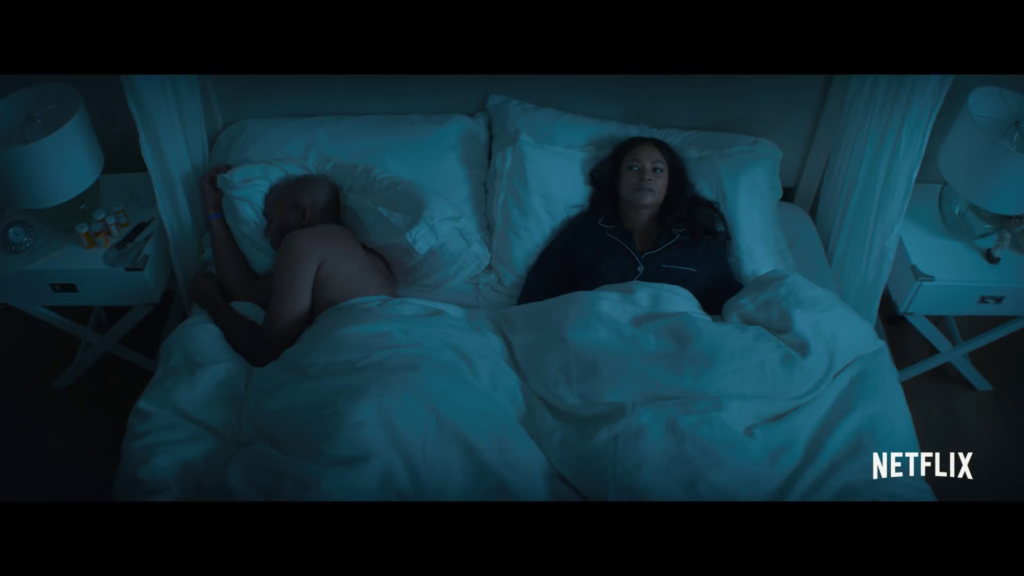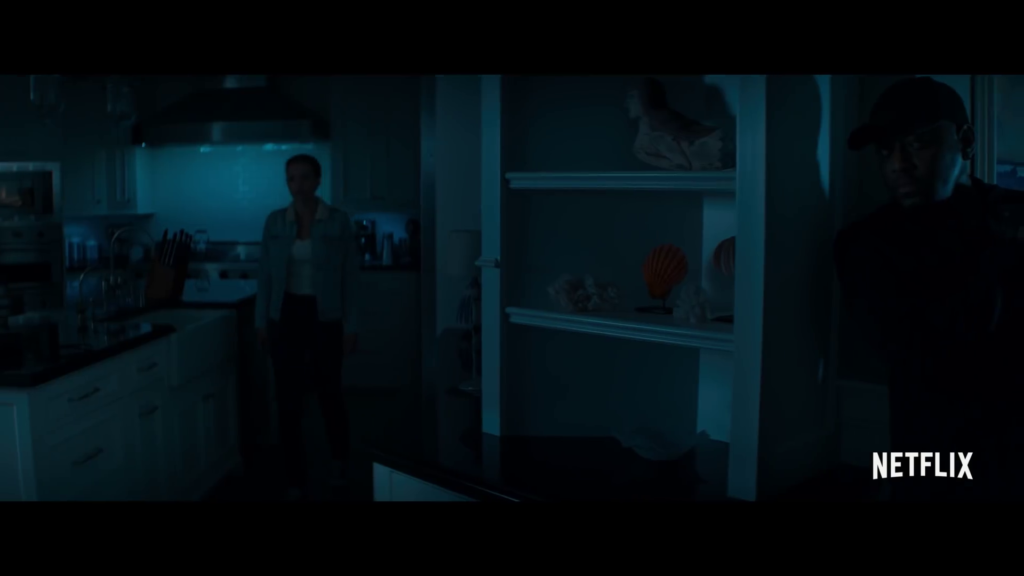
Film Review: Fatal Affair
Co-written and directed by Peter Sullivan. US, 2020, 89 minutes.
Available on Netflix.
Film critic Charles Bramesco keeps a ranked list of every “Netflix original” at Vulture, with more than 400 movies already in the books. To him, they’re netflicks—his phrase for the company’s self-distributed features. And while “a netflick is any movie released by Netflix,” he says, some are more netflick than others—the ones “characterized by their canned Muzak, aggressive color-grading, and more than anything, a lurching overlongness.” For me the definition befits no single film so much as Fatal Affair, an insultingly low-effort genre movie the streaming conglomerate just produced from scratch.
As the title indicates, Fatal Affair is a knockoff of Fatal Attraction (1987), although it’s been gender-flipped and made completely sexless to better follow contemporary fashion. Now in the Michael Douglas role is Nia Long as one Ellie Graves, a successful lawyer married to the boring and borderline-celibate Marcus (Stephen Bishop). And filling the shoes of Glenn Close is Omar Epps, playing master hacker David Hammond. He insinuates himself into Ellie’s life, takes her out to dinner, and plays off her marital vulnerabilities, all with dialogue that’s blatantly functional and borrowed from better movies. The story really begins when David kisses Ellie in the restroom, and she cuts it off to go home early—a more accurate title would be Fatal Makeout. In fact hardly anybody has sex in this self-styled erotic thriller, but that’s probably for the best given no single performance or character passes for human.
Of course David goes bunny-boiler after that, hitting all the standards: He continues to contact Ellie even after she blocks his numbers, meets the faithful spouse under false pretenses, attacks the best friend, and hides out in the house after dark—there’s not a single fresh conceit or setup, the movie failing to provide its viewers and its subgenre with even that simplest of courtesies (the potential counterargument that the woman-led Fatal Affair provides a more realistic treatment of stalking and harassment than its predecessors is a nonstarter because like most other made-for-TV movies the emphasis here is on plot beats and not character psychology).

The one thing that’s almost a new idea: David spies on Ellie with tech redolent of the present American surveillance state, because as mentioned he’s a world-class hacker—a concept the film presents seriously despite eventually revealing his network password to be “Ellie_Graves”. But even that surveillance deal is just lazy window dressing, hardly even factored into the narrative or set pieces: Fatal Affair can’t even turn the digital-stalking angle into a worthwhile gimmick, much less explore it for something more.
As directed by Peter Sullivan, whose recent credits include holidaysploitation movies for the Hallmark and Lifetime channels, the film is just barely competent. And it’s not only the presentation of David’s computer-hacking work that’s ironic midnight movie-bad—the rest of the film is similarly textured. Ellie is supposed to be a lawyer, but the screenplay doesn’t even bother trying to depict that. Instead we see her in a series of pseudodomestic scenes where she’s doing yoga, running on the beach, and looking thoughtfully into mirrors—it’s pharmaceutical-ad material, you half expect side effects to start running along the bottom of the screen. The sound design is tinny and oddly silent. The performances are somnambulant. And large portions are flatly blue-tinted (see above)—the color palette could be summed up as “consumer electronics.” Fatal Affair has not one cinematic pleasure to offer.
Watching Fatal Affair in close proximity to genuine erotic thrillers from the Fatal Attraction era, even midlevel entries like Poison Ivy (1992) or Body of Evidence (1993), you realize that’s exactly what’s missing from a movie like this—pleasure. And not just sex, or satisfyingly cathartic violence, but all the pleasures of genre filmmaking—even baseline stuff like playful story twists and expressive acting. Nothing of the sort can be found in this televisual aberration, which like a space-age B-movie has been made only to fill space on a virtual marquee. And even more than most of its peers on that queue, Fatal Affair demonstrates that a netflick is often something less than a real movie. [★]

